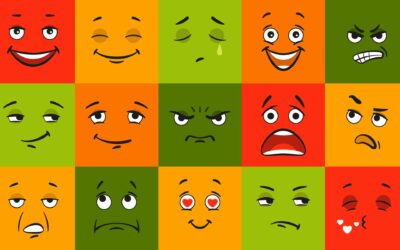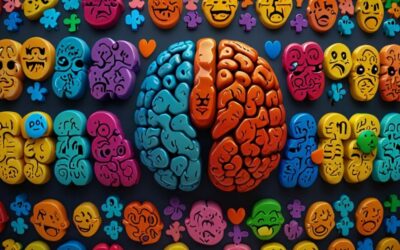The Impact of Continuous Exposure to Distressing News Events on Well-Being
During my employment with a news website, my daily routine began with a review of breaking news alerts that had occurred during the night. On days with minimal alerts, I might have opted for a later subway train or paused for coffee. However, during significant news events, I frequently found myself opening my laptop to update the website from the comfort of my bed.
This practice proved detrimental to my health. Nearly a decade later, I find that my heart rate increases upon encountering alarming headlines.
Even for individuals not engaged in journalism, similar emotional responses can arise from exposure to news coverage. While it is important to remain informed about global events, the volume and intensity of information can become overwhelming.
According to Dr. Robert Bright, a psychiatrist at the Mayo Clinic, “Repetitive and nearly constant exposure to stressful events, particularly those beyond our control, can engender feelings of hopelessness and depression.” He further notes that the prevalence of negative news can create a pervasive sense of overwhelm.
Some individuals may become disheartened, perceiving efforts to effectuate positive change as futile. Conversely, others may derive motivation from current events, fostering a deeper commitment to social improvement.
The Relationship Between Stress and Burnout
When confronted with stress, the adrenal glands release the hormone adrenaline, commonly referred to as cortisol. This hormone equips individuals with the energy needed to confront challenges (the fight response) or to withdraw to safety (the flight response). However, sustained exposure to stress often results in physical and emotional exhaustion, leading to burnout.
The psychological and emotional indicators of burnout may include:
– Decreased energy levels
– Diminished motivation
– A pervasive sense of hopelessness
– Symptoms of depression
– Apathy and indifference
– Withdrawal from social engagement
– Disruption in eating patterns (either overeating or insufficient consumption)
– Impaired sleep patterns
Strategies for Coping with Overwhelming News Media
Anxiety may escalate when individuals perceive a situation as being beyond their control. Implementing effective problem-solving and flexible coping strategies can assist in regaining a sense of agency. The following strategies may be beneficial when news coverage disrupts personal well-being:
Limit Exposure to News Media
The incessant flow of news can amplify feelings of fear and anxiety. This phenomenon can occur even when news broadcasts are merely playing in the background. Personally, I actively avoid environments, such as certain gyms, where 24-hour news networks are continuously displayed.
To mitigate anxiety, it is advisable to establish limits on news consumption. For example, one might allocate a specific time, such as five minutes, for reviewing social media updates. Additionally, it may be prudent to unfollow social media accounts that consistently present distressing headlines and to check the news only at designated times, such as once in the morning and once in the evening.
Avoid Late-Night News Monitoring
Maintaining a constant stream of news can keep distressing events at the forefront of the mind. According to Dr. Bright, disengaging from news can facilitate a more restful state conducive to sleep. Concerns about missing significant information should be tempered with the understanding that news is intentionally designed to engage viewers, similar to popular television programming.
After dinner, I endeavor to restrict media consumption to lighter, more uplifting content, such as novels or enjoyable podcasts. Engaging in creative activities or household tasks also contributes to an improved emotional state.
Seek Reliable Information Sources
One should consider turning off news coverage when anchors or guests begin to offer speculative opinions rather than verified information. During rapidly evolving news situations, individuals with professional expertise are often called upon to provide insights. However, it is vital to exercise discernment regarding the reliability of their information.
This was particularly evident during the COVID-19 pandemic, when the understanding of new variants evolved slowly. Despite this, various individuals with medical credentials presented predictions shortly after variant discoveries, often without comprehensive data.
To assess the credibility of a news story, one should:
– Conduct a web search on the credentials of any quoted “expert,” as one may discover conflicts of interest, such as endorsements of specific products.
– Verify information against additional news sources to determine consistency in reporting.
– Consult reputable websites, particularly those with domains ending in .gov, .edu, or .org, to obtain verified information.
If there are suspicions regarding the credibility of the information being consumed, one may choose to discontinue its consumption and revisit it at a later time when confirmed data is likely to be available.
Maintain Skepticism Regarding Social Media
Given the accessibility of information dissemination on social media platforms, it is crucial to thoroughly review articles prior to sharing them. Headlines are often crafted to attract attention and may not accurately reflect the content of the full article. Even established news organizations may sensationalize headlines, necessitating a careful evaluation of the information presented.
Do something
Yes, sometimes world events are too big for one person to make a difference. But it adds up when multiple groups are inspired to do something. Pick a cause that matters to you and see if you can meaningfully contribute to a solution. Gather your friends and family to help. Maybe you could raise money, support a political initiative of a candidate or plant trees. Focusing on what you can do helps give a sense of control.
Take care of yourself
You are not responsible for fixing every situation. Sometimes you need to take a break to take care of yourself. If the news feels overwhelming, turn it off. Step away and find calming activities you enjoy. You might feel better after taking a walk, participating in a hobby or connecting with a loved one. Taking care of you also gives you the energy to come back the next day and try to make a difference.
Help is available
If stress, anxiety or depression are impacting your life, professional help is available. A mental health therapist can help you with coping strategies or medication if needed. Contact your healthcare professional if you experience:
- Difficulty sleeping.
- Changes in eating patterns.
- Difficulty concentrating on normal tasks.
- Feelings of helplessness, hopelessness, prolonged sadness or overwhelming worry.










